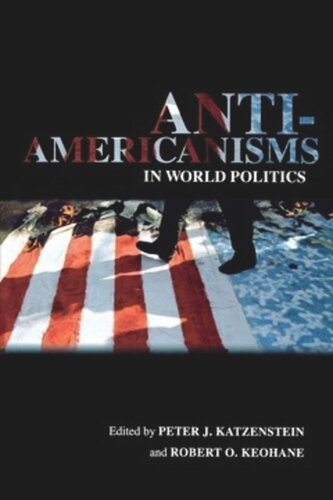

Most ebook files are in PDF format, so you can easily read them using various software such as Foxit Reader or directly on the Google Chrome browser.
Some ebook files are released by publishers in other formats such as .awz, .mobi, .epub, .fb2, etc. You may need to install specific software to read these formats on mobile/PC, such as Calibre.
Please read the tutorial at this link: https://ebookbell.com/faq
We offer FREE conversion to the popular formats you request; however, this may take some time. Therefore, right after payment, please email us, and we will try to provide the service as quickly as possible.
For some exceptional file formats or broken links (if any), please refrain from opening any disputes. Instead, email us first, and we will try to assist within a maximum of 6 hours.
EbookBell Team

5.0
40 reviewsAnti-Americanism has been the subject of much commentary but little serious research. In response, Peter J. Katzenstein and Robert O. Keohane have assembled a distinguished group of experts, including historians, polling-data analysts, political scientists, anthropologists, and sociologists, to explore anti-Americanism in depth, using both qualitative and quantitative methods. The result is a book that probes deeply a central aspect of world politics that is frequently noted yet rarely understood.
Katzenstein and Keohane identify several quite different anti-Americanisms-liberal, social, sovereign-nationalist, and radical. Some forms of anti-Americanism respond merely to what the United States does, and could change when U.S. policies change. Other forms are reactions to what the United States is, and involve greater bias and distrust. The complexity of anti-Americanism, they argue, reflects the cultural and political complexities of American society. The analysis in this book leads to a surprising discovery: there are as many ways to be anti-American as there are ways to be American.
Contributors: John Bowen, Washington University in St. Louis; Giacomo Chiozza, University of California, Berkeley; Pierangelo Isernia, University of Siena; Alastair Iain Johnston, Harvard University; Peter J. Katzenstein, Cornell University; David M. Kennedy, Stanford University; Robert O. Keohane, Princeton University; Marc Lynch, Williams College; Doug McAdam, Stanford University; Sophie Meunier, Princeton University; Daniela Stockmann, University of Michigan